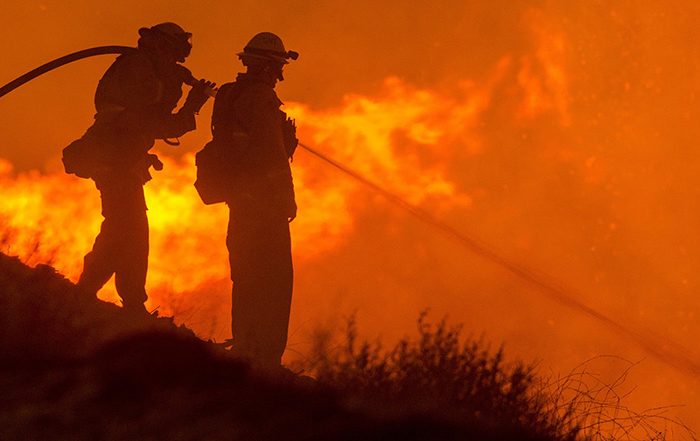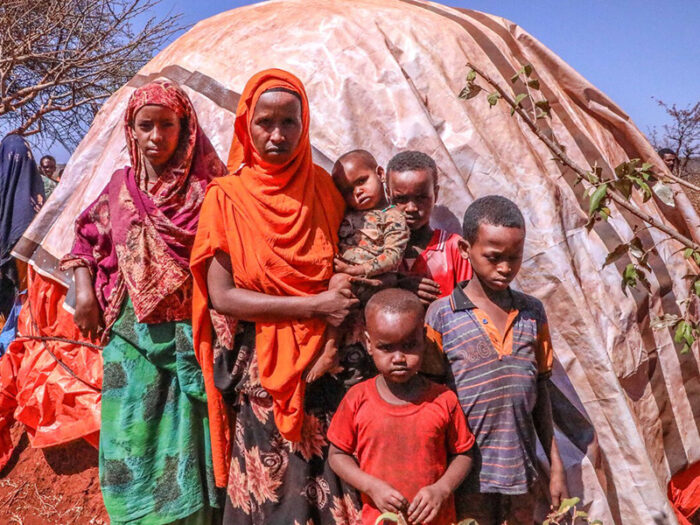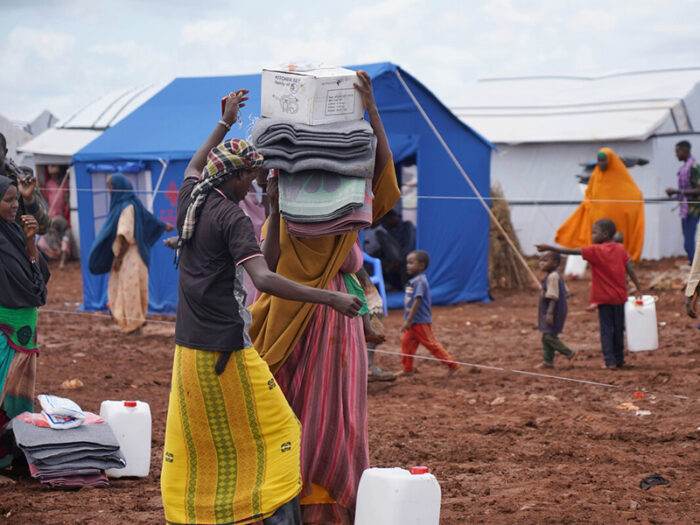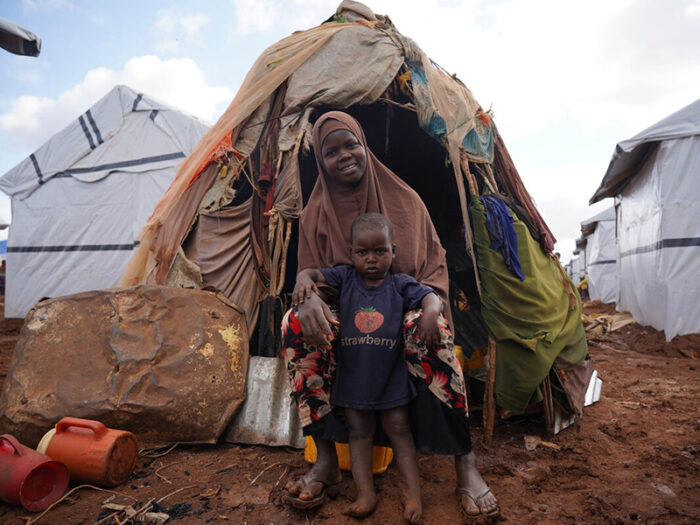
Disasters explained: wildfires
Wildfires burn millions of acres of land every year. Find out more about what they are and their connection with climate change.
Heatwaves and intense hot weather can be extremely dangerous for people.
The World Health Organisation reports that heatwaves are one of the most dangerous weather events. Yet they can be under-reported as the impacts from heatwaves are not always immediately obvious. They can cause dehydration, blood clots and induce heatstroke. Heatwaves can also have devastating affects on crops and wildlife. They can lead to problems such as droughts and wildfires.
Here, you can read and learn more about what they are, why they happen and what their link is to climate change.
We have never needed to respond to a heatwave. However ShelterBox provides emergency shelter following different types of disasters. This includes droughts, tropical storms and other climate related disasters.
A heatwave is a period of unusually hot weather, often lasting several days.
According to the Met Office, a heatwave is an extended period of hot weather relative to the expected conditions of the area at that time of year. The effects are more severe when accompanied by high humidity.
Heatwaves usually occur in the summer when we are more likely to see high pressure weather systems. High-pressure systems force air downward, trapping warm ground air in place. This force prevents air from rising and as a result there is nothing to prevent the hot air from getting hotter. Rising ocean temperatures also increase the warm ground air there is. The combined affects are known as heat domes.
High pressure systems are slow moving and can persist for a prolonged period of time, such as days or weeks.
The highest temperatures reached each day during a heatwave are often what hits the headlines. Also of significant impact though is how long a heatwave lasts, and the temperatures at night. Prolonged heat over a longer period of time is more likely to cause problems to human health and the local environment. If temperatures stay high at night it provides no relief from the heat, adding to the problems heatwaves cause. The World Meteorological Organization reports that high temperatures at night are a bigger problem than the peak temperatures seen during the day.


Heatwaves are extreme weather events. Scientists believe that climate change is making heatwaves more severe and more frequent.
A higher concentration of carbon dioxide (CO2) in the atmosphere is making heatwaves more common. When CO2 builds up in the atmosphere, it traps in heat like a blanket, causing the Earth’s temperature to rise.
As greenhouse gas emissions continue to increase, heatwaves are expected to occur more often and at higher intensity.
Scientists reported that climate change made heat wave that affected the Spain, Portugal, Morocco and Algeria in April 2023 100 times more likely. The World Weather Attribution group also said that 40°C temperatures in the UK in 2022 were ‘almost impossible’ without climate change.
Ocean temperatures continue to climb. As such scientists predict that heatwaves will become far more frequent.


Heatwaves kill thousands of people each year. Many more suffer serious health impacts that can linger long after it has passed.
The World Meteorological Organization reported that over 60,000 people died of extreme heat in Europe during heatwaves in the summer of 2022. This is likely to be a conservative estimate. This is in the context that Europe has some of the best early warning systems and heat-health action plans in the world. The impact in areas that are less well prepared could be even more devastating.
Vulnerable groups such as very young children, the elderly and people with existing health issues are more likely to experience the impacts of extreme heat. This is because they find it harder to maintain their core body temperature.


Moreover, heatwaves can put a strain on health and emergency services. People are more likely to use more water and energy to run cooling systems such as air conditioning or fans. This increases strain on water, energy and transportation that can cause power shortages or even blackouts.
Extreme heat can also affect food security and livelihoods, with crops and livestock being compromised. They can be a factor in wildfires, and can help lead to droughts. In the Horn of Africa, hot temperatures and drought have been a factor in driving displacement. People are forced to flee their homes in search of water, food and healthcare. Dwindling resources can also contribute to increasing violence in some regions. This further fuels displacement. ShelterBox is working in Ethiopia and Somalia to help those displaced in the region.
Support Our WorkThere are several simple things you can do to protect yourself during a heatwave.
Follow advice from health authorities such as the NHS for more tips on how to cope during a heatwave.